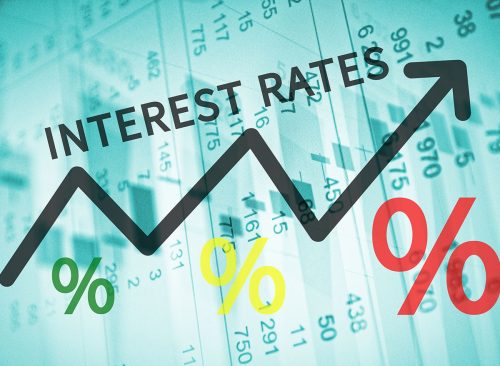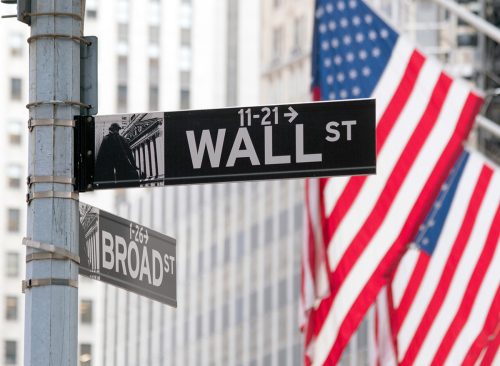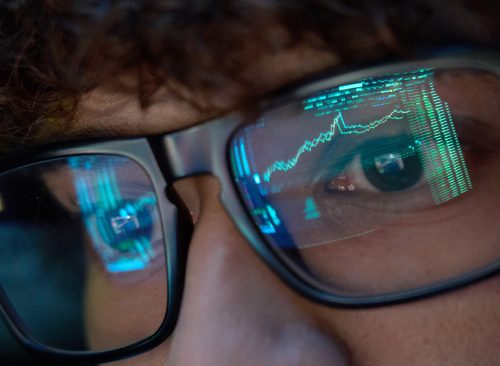
Recent economic news has been fairly good: Inflation is down to the lowest level in two years, and hiring remains strong. Still, investors worry; that’s what they do. Does slightly slowed hiring in August mean a recession is on the way? Or will the Fed’s recent decision to raise interest rates to a 22-year high push the U.S. off an economic cliff? When it comes to protecting the money you have in stocks, you’re not entirely flying blind; experts say there are five reliable indicators that the stock market is about to tank.
1
Valuations Get Too High

“If profit margins are excessively high and price-to-earnings ratios are sharply higher than their long-run averages, that is something to watch out for,” Victoria Scholar, of the broker Interactive Investor, told the Telegraph this week. How do you know if a stock is overvalued? Calculate the PE ratio by dividing a company’s share price by its earnings per share, which you can find in its annual report.
2
There’s an “Inverted Yield Curve”

The inverted yield curve is considered a reliable predictor that a recession is on the way. That happens when long-term interest rates drop below their short-term equivalents. “Since 1978, the yield curve has inverted six times (not counting the current inversion period) and has preceded a recession each time,” Megan Horneman, chief investment officer at Verdence Capital Advisors, wrote recently.
3
There’s a Sell-Off

A significant change in the economic big picture can spark a mass sell-off of stocks. For example, when interest rates start to rise. “It is important to remember the market is constantly forward looking—when investors first become concerned about a recession, that is usually when stocks first suffer,” the Telegraph advises.
4
A “Black Swan” Event

An unexpected event can cause investors to freak out and spark a sell-off. “Most major market corrections are often initiated by an unexpected ‘black swan’ event, such as the onset of Covid-19 in 2020, or the subprime mortgage crisis in the banking sector in 2008,” said Scholar. A spike in the Vix index, known as Wall Street’s “fear index,” can indicate that traders are getting nervous.
5
The “Death Cross”

When a short-term moving average crosses below a long-term moving average, experts call it a “death cross.” Traders consider this a “bearish” pattern which suggests a stock or index has downward momentum.














